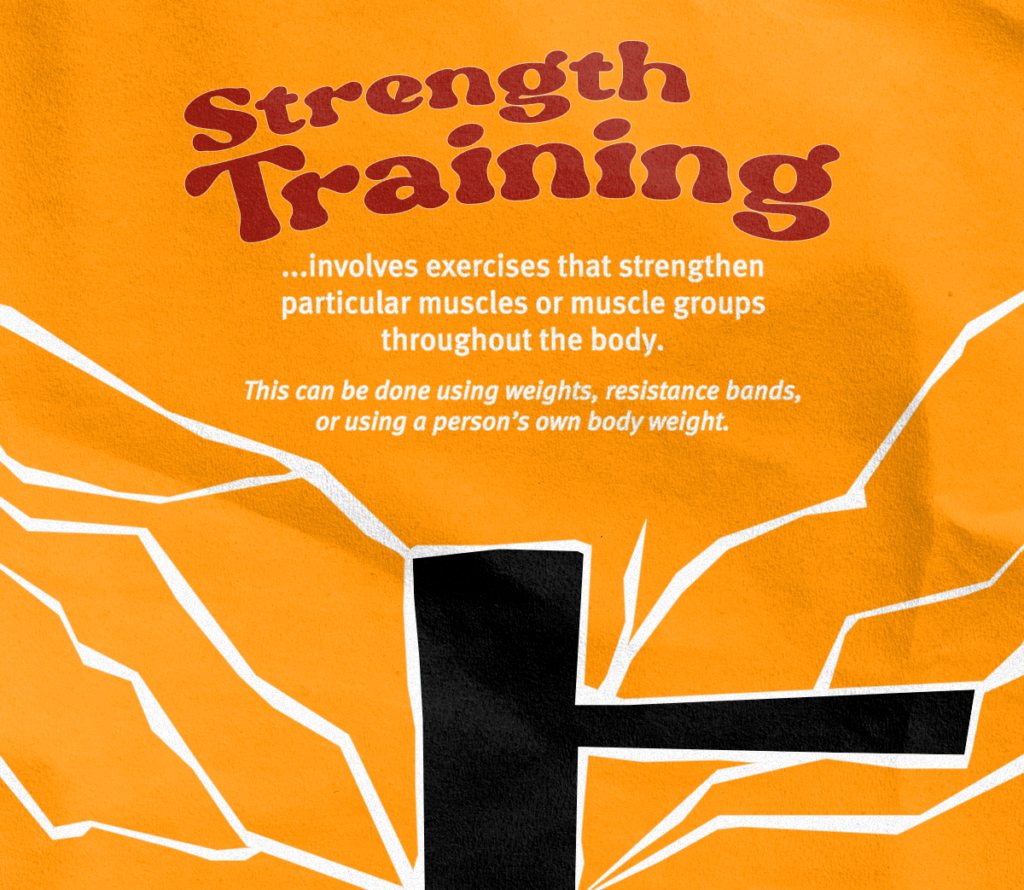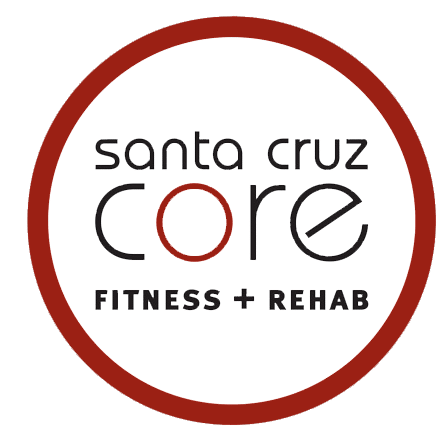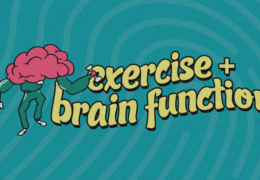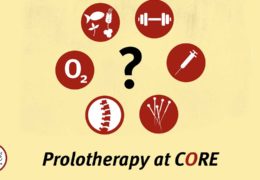When many think of strength training, they think of intense weight lifting and huge muscular men and women.
Strength training, however, is much more than exercise aimed at getting huge muscles and everyone young, old, small, or big can benefit from it. It can help improve coordination, strength, circulation, bone density, and help keep older individuals active and independent.
It is important to realize that weight exercises are not exclusive for bodybuilders and the “beach body” types, and that everyone is encouraged to engage in it when it is safe.
Strength Training
Also known as resistance or weight training, strength training involves exercises that strengthen particular muscles or muscle groups throughout the body. This can be done using weights, resistance bands, or using a person’s own body weight.

Examples include using weight machines at the gym or home, lifting weights, arm curls and squats using dumbbells, doing push ups, and pull ups. Strength training exercises are very versatile as these can involve diverse movements with added weight or resistance.
Health Benefits
Strengthening one’s muscles does much more than make one look muscular, it comes with a host of health benefits.
Metabolic
Increased muscle mass means that the body is burning more calories, on average, when compared to lesser muscle mass. This is helpful to those who are trying to maintain weight and who are trying to lose weight and those who simply want to gain more muscle.
Skeletal muscle is also a major consumer of carbohydrate and fat; it uses these as energy sources to fuel everyday movement and exercise. Exercising muscles and increasing muscle mass, therefore, can help maintain healthy blood sugar and lipid levels as it affects metabolism.
Musculoskeletal
Strength training strengthens muscles, connective tissues (like tendons and ligaments), bones and promotes healthy joints.
Skeletal muscle helps the skeleton support the body, thus having stronger muscles can help with chronic pain associated with excess weight in particular joints such as the lower back or knees.
Strong bones and muscles can help prevent fractures and lowers one’s risk for osteoporosis, especially in the older population.
A review carried out by Zamoscinska (2020) on the interventions to lower risk for osteopenia and osteoporosis by focusing on the effects on bone mineral density (BMD), found that strength training has a significant positive impact on BMD in older women.
It is also worth noting that exercise has a positive effect on coordination and balance, this can lower a person’s risk of injury during exercise and in daily life, especially in the older population.
Circulation
Skeletal muscle is a major consumer of blood glucose and blood lipids, and thus helps regulate them.
This is ideal for individuals who are at risk for vascular problems due to high blood sugar, high triglycerides, and high cholesterol levels. Muscle use itself also requires a significant amount of oxygen, promoting the blood perfusion to the extremities and overall circulation.
Lymphatic vessels, which collect excess fluid from tissues throughout the body, also rely heavily on muscle contraction to get fluid back into circulation and prevent swelling.
Brain Health
Strength training promotes brain health and function. Exercise leads to improved circulation and oxygen delivery to the brain and can even boost cognition.
A non-randomized pilot trial by Macaulay Et al. (2021) suggests that resistance training in older adults helps increase fluid cognition. Examples of this include attention, working memory, and processing speed.
Exercise also helps promote sleep and can help regulate circadian rhythms. It is known to improve mood, helps manage anxiety and stress and ameliorate symptoms of depression.
Santa Cruz CORE offers personal training sessions tailored to the individual’s health and fitness needs. Our CORE trainers are ready to go beyond just strength training to offer a functional integrative fitness experience.
References-
- Zamoscinska, M. (2020). Do Older Adults With Reduced Bone Mineral Density Benefit From Strength Training? A Critically Appraised Topic. Journal of Sport Rehabilitation, 29(6), 833–840. https://doi.org/10.1123/jsr.2019-0170
- Macaulay, T. R., Pa, J., Kutch, J. J., Lane, C. J., Duncan, D., Yan, L., & Schroeder, E. T. (2021). 12 weeks of strength training improves fluid cognition in older adults: A nonrandomized pilot trial. PLoS ONE, 16(7), 1–17. https://doi-org.lib-ezproxy.lbcc.edu/10.1371/journal.pone.0255018









Leave a Reply